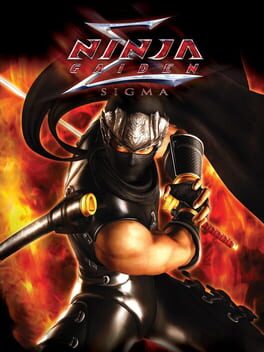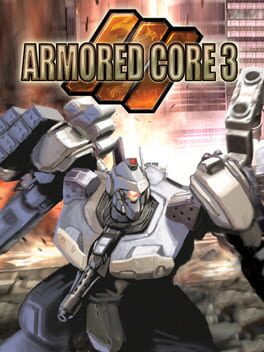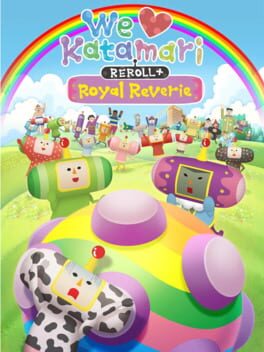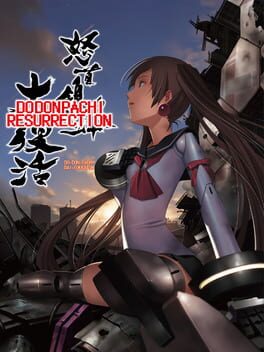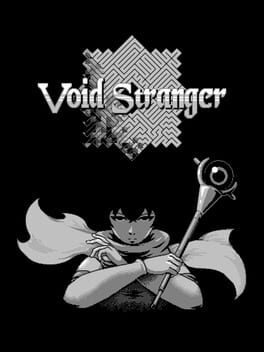yotsuboy
2007
A sidestep rather than the step backwards Sigma 2 is to NG2. Most changes are admissible. Not necessary but not unwelcome either. Some arenas are different, there's some extra fiend challenges, some areas & encounters have new formations & enemies... A few puzzles get simplified and a mini boss or two is added or reworked. But Rachel missions honestly suck, it's not even half has fun as Ryu with the war hammer, only upside is some aren't too long. Mission mode is also switched up a bit.
Given that NGB is a great game to replay on higher difficulties to see new types of enemies, attacks, changes in exploration... it's not the worst to play like a remixed version of it. And includes some nice additions like dual katanas but overall so much is passable or unwanted that it ends up not as good. Worse, while it's presented nowadays as the definitive edition of NG, it doesn't fix some problems NGB had but instead creates new ones of its own.
But it still has the core gameplay and feels at least like 75% of the main game; it's not a terrible thing to start with or even try out despite having played black.
Given that NGB is a great game to replay on higher difficulties to see new types of enemies, attacks, changes in exploration... it's not the worst to play like a remixed version of it. And includes some nice additions like dual katanas but overall so much is passable or unwanted that it ends up not as good. Worse, while it's presented nowadays as the definitive edition of NG, it doesn't fix some problems NGB had but instead creates new ones of its own.
But it still has the core gameplay and feels at least like 75% of the main game; it's not a terrible thing to start with or even try out despite having played black.
1999
2002
2023
2022
Happened to be reading 'Caliban and the witch' around the same time I was playing this, a great coincidence as it addresses a lot of the same historical events surrounding the game (revolts, taxes, Lutheranism, heresies... basically just about everything).
And being given even just a bit of context opens your eyes to how much care has gone into all things historical. Details, big or small, are everywhere, even those minute enough to go unnoticed by most people. Nonetheless, the sum of all these efforts gives it an atmosphere hard to replicate elsewhere. Despite spending most of your time walking from one place to another and talking to people, it's so captivating that you're as invested as the character you're playing as.
There's an interesting plot (which is hard to go into without spoilers), but that's only half of it. Because another great success is how Pentiment mixes the unusual with the mundane. In the midst of your investigations you're also exposed to the way the characters live. You learn about their views and values, their livelihood... and while at first it may come off as information for the cases, ultimately you've gotten to know them well enough and even empathize with some of them. As a historical work, it achieves its goal of familiarizing one with the past: highlighting its similarities and contrasts in order to show both the historical context of the people as well as how they're shaped by it.
In short, it makes you see the present in the past and vice versa: you can imagine how they would have fared under other circumstances (for example, not being restrained by becoming a nun).
In fact a lot of my enjoyment of the game was from stuff that may not be as important to the central story. Tiny bits of 'irrelevant' dialogue or small interactions and decisions you make throughout the which don't really affect the main plot. Yet being invested in the game makes them very satisfying. There are also enough minigames and small fun puzzles paced throughout the game to alternate with the narrative so that it never feels repetitive.
As for its style, it's amazing. Though it often aims for a more ordinary look to portray the town and its people, it can also be downright beautiful when it wants, often mimicking manuscripts or paintings. Either way it's one of the more unique looking games out there and that also extends to the menus like the map or your journal, the passing of time, and the written dialogue mechanic which also gets used nicely for the narrative.
That's because Pentiment also excels at taking fully advantage of the medium it's in. Many of the things it does and some of its best aspects work because it's a game.
It may have a well-researched bibliography during the credits but it's far from just an abridgement of that information in the form of a game. Stuff like interactivity plays a big role, because it's one thing to read that an event happened during a period of time and another to take part in it and even see how your involvement shapes the outcome. Thus I often was not only thinking about the mystery at hand being solved, but about its implications as well. Whether some lines of questioning were better left alone or if sometimes it was worth speaking the truth; and how this would impact the people around me.
It's a great game, but it also makes me happy that it's a game where it shows that they made what they wanted to do, and enjoyed doing it.
And being given even just a bit of context opens your eyes to how much care has gone into all things historical. Details, big or small, are everywhere, even those minute enough to go unnoticed by most people. Nonetheless, the sum of all these efforts gives it an atmosphere hard to replicate elsewhere. Despite spending most of your time walking from one place to another and talking to people, it's so captivating that you're as invested as the character you're playing as.
There's an interesting plot (which is hard to go into without spoilers), but that's only half of it. Because another great success is how Pentiment mixes the unusual with the mundane. In the midst of your investigations you're also exposed to the way the characters live. You learn about their views and values, their livelihood... and while at first it may come off as information for the cases, ultimately you've gotten to know them well enough and even empathize with some of them. As a historical work, it achieves its goal of familiarizing one with the past: highlighting its similarities and contrasts in order to show both the historical context of the people as well as how they're shaped by it.
In short, it makes you see the present in the past and vice versa: you can imagine how they would have fared under other circumstances (for example, not being restrained by becoming a nun).
In fact a lot of my enjoyment of the game was from stuff that may not be as important to the central story. Tiny bits of 'irrelevant' dialogue or small interactions and decisions you make throughout the which don't really affect the main plot. Yet being invested in the game makes them very satisfying. There are also enough minigames and small fun puzzles paced throughout the game to alternate with the narrative so that it never feels repetitive.
As for its style, it's amazing. Though it often aims for a more ordinary look to portray the town and its people, it can also be downright beautiful when it wants, often mimicking manuscripts or paintings. Either way it's one of the more unique looking games out there and that also extends to the menus like the map or your journal, the passing of time, and the written dialogue mechanic which also gets used nicely for the narrative.
That's because Pentiment also excels at taking fully advantage of the medium it's in. Many of the things it does and some of its best aspects work because it's a game.
It may have a well-researched bibliography during the credits but it's far from just an abridgement of that information in the form of a game. Stuff like interactivity plays a big role, because it's one thing to read that an event happened during a period of time and another to take part in it and even see how your involvement shapes the outcome. Thus I often was not only thinking about the mystery at hand being solved, but about its implications as well. Whether some lines of questioning were better left alone or if sometimes it was worth speaking the truth; and how this would impact the people around me.
It's a great game, but it also makes me happy that it's a game where it shows that they made what they wanted to do, and enjoyed doing it.
